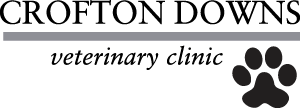Keep your dog healthy
Dogs are phenomenal pets. It doesn’t matter if you get a puppy or a more mature rescue dog. Furry friends return the love and affection you give them, with bonding time helping you destress as well. Pets are great for your mental and emotional well being as well as being wonderful company. Big or small, fluffy or smooth our dogs become part of our family. That is why it is important to keep them healthy by keeping their vaccinations up to date.
Why you should vaccinate?
There are several life-threatening diseases that are preventable through the administration of vaccines. Veterinarians use vaccines to prevent the spread and severity of deadly diseases. We want our dogs to be with us for a long time, and have the best quality of life, which is why vaccines are so important.
What are vaccinations?
Vaccinations are a modified form of a specific disease or a combination of diseases. Synthetically modified versions of the vaccine are injected into your healthy dog. The dog’s immune system then creates antibodies to the vaccinated diseases. Vaccinated canines that come into contact with the disease have the tools to effectively fight the otherwise deadly viruses.
There are two types of vaccines, the core vaccines and non-core vaccines. Crofton Down Vets are experts and will advise you which of the non-core vaccines, if any your dog will require.
Core Vaccinations
Core vaccinations are important for every dog. They protect your puppy and adult dog from these viruses:
Non Core Vaccinations
Crofton Down Veterinarians will guide you regarding what non-core vaccinations. These are vaccinations that only certain dogs will need, the need depends on location, contact with other animals and the amount of strays in your area. Your travel habits will have an impact on what vaccinations your dog requires too.
Vaccination Schedule
Below is a guideline on when to vaccinate your puppy, these are the recommended schedules to follow. The vet will give your puppy a thorough examination before administering any vaccination to ensure the cat is healthy.
- 8 weeks, the first of the core vaccinations are given.
- 12 weeks your puppy will receive its first booster shot.
- 16 weeks final booster injection.
- After that your dog will need a booster shot every 1 to 3 years. It will all depend on the actual product used.
Depending on when your pet received injections with the breeder, this program may need to be modified slightly.
If you adopt a mature rescue dog, or if your dog has missed any of its booster shots, make an appointment as soon as you can with the vet to make sure your cat gets protected.

